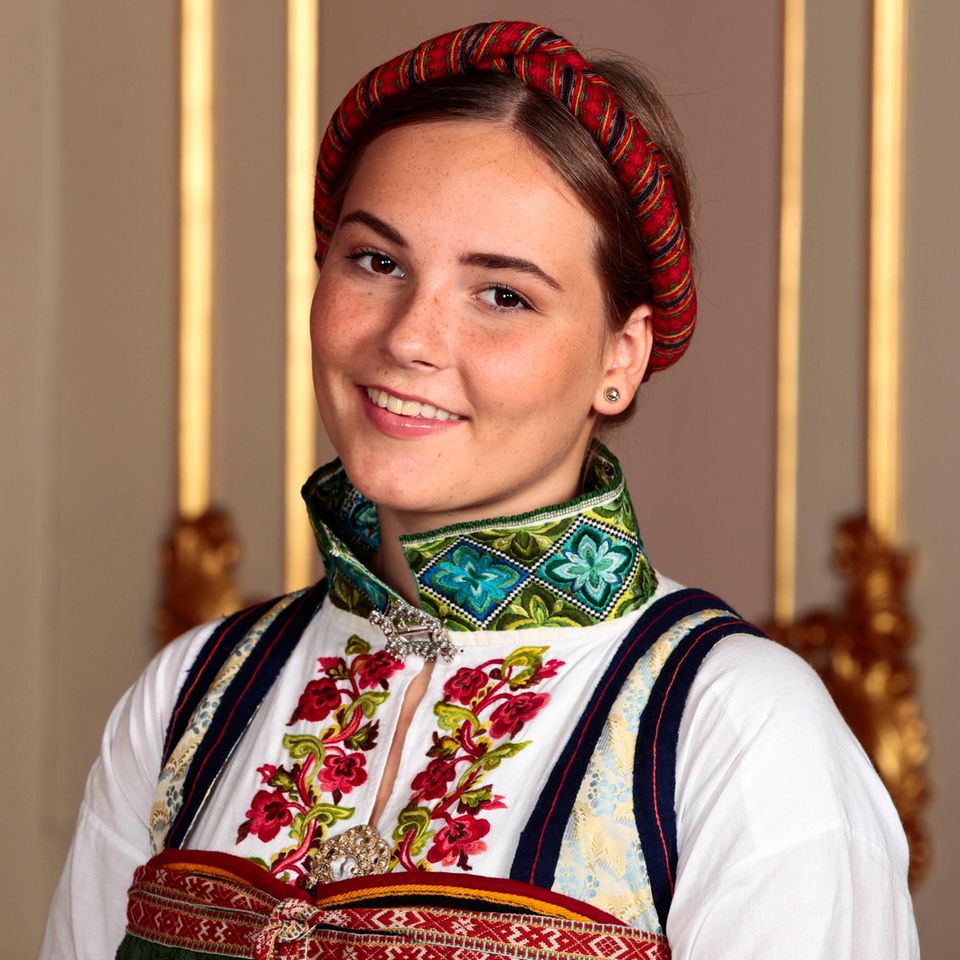When we hear a name, so often, we might think about the person who carries it, perhaps someone famous, or maybe a friend. Yet, there is, too, a deeper story waiting to be told, a narrative that stretches back through time, woven into the very sounds and letters that make up a name. It's almost like a hidden whisper from generations past, carrying pieces of language and culture with it.
For someone named Ingrid Rossellini, for example, the first part of that name, "Ingrid," holds quite a fascinating background. It's a name that has traveled across ages and regions, picking up layers of meaning and history along the way. We often overlook how much a simple set of syllables can convey, or just how much history can be packed into something we use every single day.
This particular name, Ingrid, comes with a rather rich heritage, rooted in ancient traditions and beliefs. It speaks to a time when names were very much connected to gods, to nature, and to qualities people admired. So, let's take a closer look at what makes this name, which someone like Ingrid Rossellini would carry, so special, and explore its journey through the ages.
Table of Contents
- Unpacking the Meaning of "Ingrid"
- The Roots of a Scandinavian Name
- The Enduring Charm of "Ingrid"
- The Power of a Name - More Than Just Letters
Unpacking the Meaning of "Ingrid"
Every name has a tale, a sort of origin story that gives it a unique flavor. The name Ingrid, for instance, is no exception. It carries with it a sense of history and a specific cultural background that is quite interesting to explore. When we consider a name like Ingrid, we are, in a way, looking back at the linguistic pathways of earlier times, and how people expressed meaning through the words they chose for their young ones. It’s a bit like finding an old map that shows where things used to be.
Where Did the Name Ingrid Come From?
The journey of the name Ingrid starts a long way back, in the lands of Scandinavia, with its roots firmly planted in Old Norse. It's actually a shorter form of an even older name, Ingiríðr, which itself was a shortened version of Ingfríðr. You know, it’s quite common for names to change over time, getting a little shorter or adapting to how people speak. This process shows how languages evolve, and how sounds shift over generations. It’s almost like a river changing its course slightly over time, yet still flowing from the same source. So, for someone like Ingrid, their name connects them directly to this ancient linguistic flow.
The name's earliest elements are particularly telling. The first part, "Ing," refers to a very old Germanic god. This god was known by other names too, like Ingui or Yngvi, and was often associated with things like fertility. It's really quite something to think that a name could carry such a connection to a deity from so long ago. This practice of naming children after gods or important figures was a common way, in some respects, to bring good fortune or to honor spiritual beliefs. It’s a reflection of how deeply intertwined language and belief systems once were, and in many cultures, still are. The name Ingrid, in this sense, is a small window into that past.
- How Old Is Diddy
- Ariana Grande Boyfriend
- Baldwin Brothers
- Gracie Abrams Abs
- Chris Pratt Movies And Tv Shows
What Does "Ingrid" Really Mean?
The second part of the name, "fríðr," is where a lot of the beauty of Ingrid comes into play. This element means "beloved" or "beautiful." So, when you put "Ing" and "fríðr" together, you get a name that essentially means "Ing's beauty" or "fair." It’s a pretty lovely sentiment to have in a name, don't you think? It suggests a connection to something divine, combined with qualities of attractiveness and affection. This kind of meaning makes a name feel very special, giving it a certain warmth and appeal that goes beyond just a label.
The meaning of "fair" can also imply a sense of purity or goodness, not just outward appearance. This dual interpretation gives the name a deeper resonance, suggesting someone who is not only pleasing to look at but also possesses good character. It's a rather rich blend of meanings, offering a complete picture of desired qualities. For someone like Ingrid Rossellini, carrying such a name means being linked to these ancient concepts of beauty and divine connection, a heritage that is, in a way, quite grand.
The Roots of a Scandinavian Name
The origin of Ingrid is firmly rooted in the Scandinavian region, a place known for its rich Norse history and distinctive cultural contributions. This geographical connection is quite important because it tells us a lot about the linguistic family the name belongs to and the traditions it stems from. Names often act as little cultural ambassadors, carrying bits of their homeland with them wherever they go. So, when we talk about Ingrid, we are really talking about a piece of Scandinavian heritage, passed down through generations. It’s like a thread that connects us to a specific part of the world and its past.
The Old Norse language, from which Ingrid springs, was the tongue spoken by the Norsemen, the people of the Viking Age. This language has given us many words and names that are still in use today, showing its lasting impact. It's a fascinating thought that a name like Ingrid has survived centuries, adapting and continuing to be used in various parts of the world. This endurance speaks to the inherent appeal and the meaningfulness that people have found in it over time. In a way, the name itself has been on a long journey, much like the people who first spoke it.
How Has the Name Ingrid Traveled Through Time?
Over the years, Ingrid has spread beyond its original Scandinavian home. It’s now quite common in places like English-speaking countries, Germany, and of course, it remains very much a part of Scandinavian naming traditions. This kind of spread is typical for names that hold a certain charm or historical weight. People from different cultures adopt them, perhaps because they like the sound, or maybe because they are drawn to the meaning. It’s a testament to how culture flows and mixes, creating new patterns and connections across the globe. So, a name that started in one specific place can, actually, become a part of many different communities.
The way a name travels also tells us about historical movements, migrations, and cultural exchanges. For instance, the presence of Ingrid in Germany might be linked to historical ties between Germanic and Norse peoples. Its use in English-speaking countries could be due to immigration or simply the appeal of its sound. Each instance of the name appearing in a new place adds another layer to its story, making it richer and more complex. It's almost like a living thing, changing and growing as it moves through different linguistic environments. This journey, for the name Ingrid, shows its remarkable adaptability and lasting appeal.
The Enduring Charm of "Ingrid"
There is something about certain names that just sticks around, isn't there? Ingrid seems to be one of those names. Its classic sound and meaningful origin give it a timeless quality that many people appreciate. It doesn't feel overly trendy or fleeting; rather, it has a sense of solidity and history. This enduring charm is what allows a name to remain relevant across different generations and even different parts of the world. It’s, in a way, a quiet strength that it possesses, allowing it to remain a choice for parents seeking something both familiar and distinct.
The sound of Ingrid itself is quite pleasant, with its clear syllables and gentle flow. This phonetic appeal likely contributes to its continued use. Sometimes, the simple beauty of how a name sounds is enough to keep it in circulation, regardless of its deeper meaning. However, for Ingrid, the combination of a pleasing sound and a rich, positive meaning makes it particularly strong. It’s a name that feels both grounded and graceful, offering a nice balance that many find appealing. This balance is, perhaps, why it continues to resonate with people.
Is "Ingrid" Still a Popular Choice Today?
When we look at the popularity of names, we often see trends come and go. Some names shoot up in popularity very quickly, while others slowly fade. Ingrid, interestingly, holds a specific spot in terms of its current popularity. It’s not at the very top of the charts, but it's certainly not unheard of. For example, it has been noted as the 973rd most popular female name by one measure of popularity. This kind of ranking suggests it’s a name that is known and used, but perhaps not as common as some of the current top choices. It means that while someone like Ingrid Rossellini might meet other Ingrids, it’s not likely to be an everyday occurrence.
This level of popularity can be quite appealing to parents who want a name that is familiar but not overly common. It allows a person to have a name that is recognized and understood, yet still feels somewhat unique. It’s a good balance between standing out and fitting in. The fact that Ingrid has maintained this level of presence speaks to its lasting appeal and its ability to remain a viable option for new generations. It’s a name that, you know, has found its comfortable place in the wider collection of names available.
The consistent presence of Ingrid across various cultures, even if not at the very peak of popularity, shows its global reach. It means that the name carries a certain international flair, being understood and appreciated in different linguistic settings. This widespread acceptance adds to its charm, making it a choice that feels both rooted in history and adaptable to the modern world. It’s, arguably, a name that bridges different eras and places with ease.
The Power of a Name - More Than Just Letters
A name is far more than just a label we are given at birth. It’s a part of our identity, a piece of our personal story, and a link to our heritage. For someone like Ingrid Rossellini, her name connects her to a long line of linguistic and cultural history, whether she consciously thinks about it or not. Names carry echoes of the past, whispers of meanings, and sometimes, even reflections of ancient beliefs. They are, in a way, tiny capsules of history that we carry with us every day, influencing how we see ourselves and how others perceive us.
The sounds and origins of names can also shape our earliest experiences. A name with a strong, clear sound might evoke a different feeling than one that is soft and flowing. The cultural background of a name can also create a sense of belonging or connection to a specific group or tradition. It’s quite remarkable how much weight a few syllables can hold, isn’t it? This inherent weight gives names a subtle yet persistent influence on our lives, guiding us in ways we might not even notice.
What Can a Name Tell Us About History?
Looking into the origins of a name like Ingrid is, in some respects, like taking a small trip through history. It allows us to glimpse ancient languages, understand old religious beliefs, and trace the movements of people across continents. The mention of the Old Norse god Ing, for example, opens a window into pre-Christian Scandinavian mythology and the importance of fertility in those early societies. It’s a way of connecting with the past that feels very personal and tangible, rather than just reading dates in a book. This kind of exploration helps us to appreciate the depth and richness of human culture over time.
The journey of a name also reflects broader historical patterns, such as the spread of cultures and the mixing of populations. When we see a name like Ingrid being used in English, German, and Scandinavian contexts, it tells a story of cultural exchange and shared heritage. It shows how ideas, words, and even identities can cross borders and adapt to new environments. This adaptability is, truly, a fascinating aspect of language and human interaction. So, a name becomes a small piece of a much larger historical puzzle, helping us to piece together the narrative of human civilization.
Ultimately, a name like Ingrid is a wonderful reminder of the enduring connections between language, culture, and individual identity. It shows us that even the simplest words can hold layers of meaning and history, waiting to be discovered. It’s a pretty neat way to think about something so fundamental to who we are.
- Joe Jonas
- Oren Alexander
- Casey Affleck Movies
- Sarah Michelle Gellar Movies And Tv Shows
- Robin Dearden


